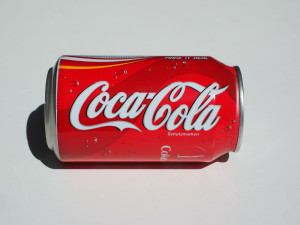The Consumer Psychology of Brand Loyalty

The Consumer Psychology of Brand Loyalty
By K. Ong
Are you gearing up toward a major marketing campaign? Then learn first about these three important findings from marketing research studies focusing on consumer psychology behind brand loyalty.
Brand Loyalty Is Hard to Unlearn
A study published in the Journal of Consumer Research described a phenomenon called cognitive lock-in, which is the difficulty faced by consumers in shedding off brand loyalty they acquired as a force of habit. What this means for marketers is that, once your brand is perceived by the buying public as trustworthy and in line with their needs, it may be difficult to erode that impression.
Cognitive lock-in, however, is only limited to a force of habit and is not transferrable. For example, even if a consumer faithfully uses ‘Google’ as his default search engine, it does not drive him to sign up for ‘Gmail’.
Consumers Loyal to a Certain Brand Are Deeply Affected by Negative News Related to the Brand
According to a study published in the Journal of Consumer Psychology, brand-conscious shoppers, when confronted by negative information about their favorite brands, take the unpleasant news as a personal affront. It even threatens their self-worth.
 An example mentioned by the researchers is an ‘Apple’ aficionado. The impact to an ‘Apple’ fan of news about deplorable working conditions at Taiwan-based ‘Foxconn’, a manufacturer contracted by ‘Apple’, is far more deeply felt compared to the reaction of a consumer who does not feel a connection with the ‘Apple’ brand. The once loyal customer may completely sever his ties with the brand.
An example mentioned by the researchers is an ‘Apple’ aficionado. The impact to an ‘Apple’ fan of news about deplorable working conditions at Taiwan-based ‘Foxconn’, a manufacturer contracted by ‘Apple’, is far more deeply felt compared to the reaction of a consumer who does not feel a connection with the ‘Apple’ brand. The once loyal customer may completely sever his ties with the brand.
The researchers said that the failure of the brand does not only lead to a plummeting bottom line. It also affects the consumers who feel an attachment to the brand. Brand-conscious loyal customers normally fight for the brand the same way they would when it comes to their personal interest. Marketers must view them as allies, and make an effort not to disappoint them.
Consumers Loyal to a Certain Brand Unconsciously Seek Out the Shortcomings of Competitors’ Ads
Say, you are a marketer courting a consumer who is loyal to a competitor’s brand. You come up with a vivid, stirring ad and present it to the said consumer. That consumer will look for weaknesses in your ad to reinforce the superiority he perceives from your competitor’s brand. The more intense the loyalty to a competitor’s brand, the higher the likelihood of fault-finding directed at your ad. Less loyal consumers tend to evaluate your ad more objectively. That is according to the findings of a study published in the Journal of Consumer Research.
The recommendations of the researchers: structure your advertising approach according to the group of consumers you are trying to court. If you are advertising in your rival’s territory, make an effort to eliminate possible loopholes in your ad that the viewer can misconstrue as a weakness.








